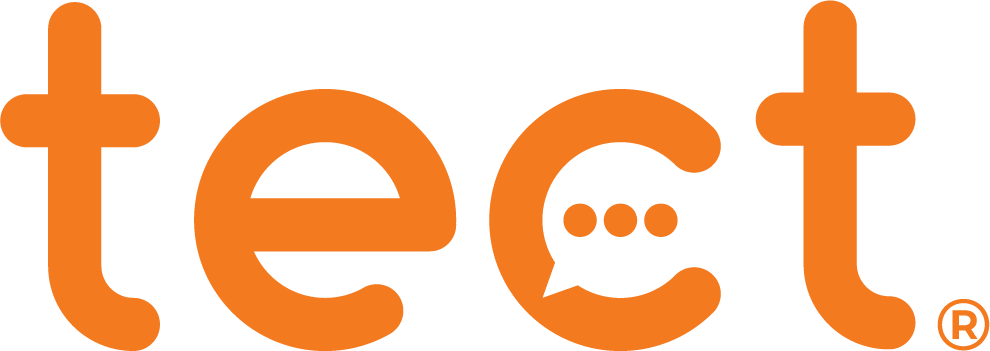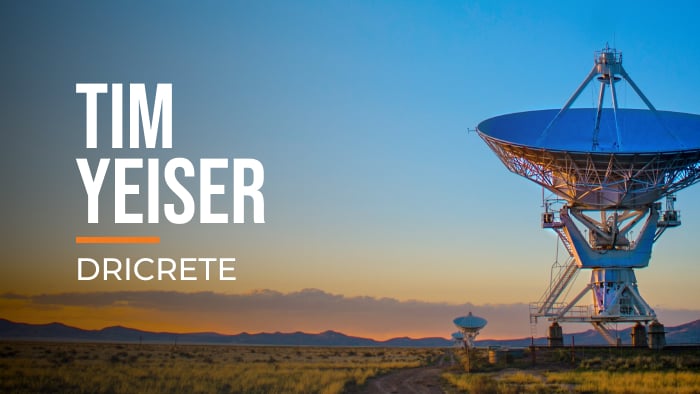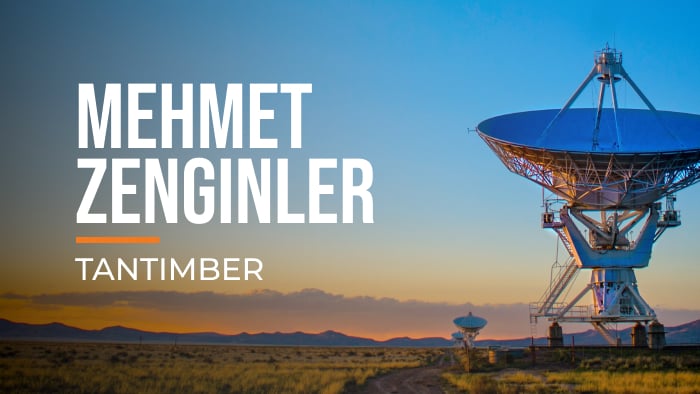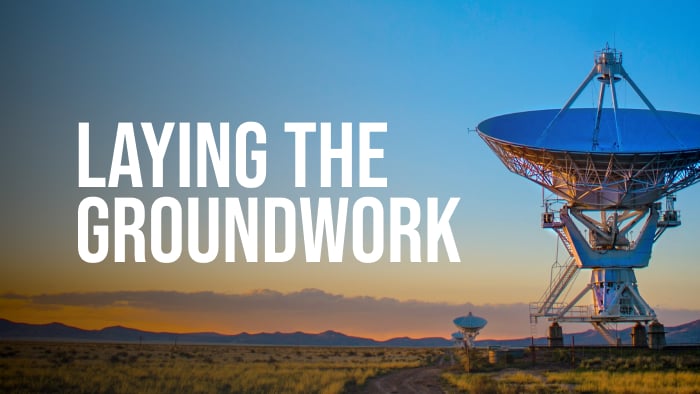
Special guest Robert Habian, AIA joins the show to help introduce the Peopleverse. Find out why we started the show, what we hope to accomplish with it, and what you can expect from each episode as we embark on this adventure together.
📺 Watch the episode on YouTube here.
🎧 Or, listen here:
Episode links:
Learn more and subscribe at https://peopleverse.fm
Episode Transcription:
Evan Troxel
Welcome to Peopleverse. I'm your host, Evan Troxel. And I'm an architect. Peopleverse is a show where I talk with people throughout the building industry to unearth authentic stories from interesting people to entertain and inspire. You might have heard of the metaverse Well, we're doing something different here.
In many ways, the building industry is still very much like the Wild West, even in a time when technology and data are abundant. Peopleverse explores the people and the stories behind the projects, to remind us why we got into this industry in the first place. And to build relationships along the way. This show is brought to you by Tect. And you can learn more about what we're doing to connect the supply and demand sides of the building industry@tect.com. And you can learn more about peopleverse@peopleverse.fm.
In this episode of Peopleverse, I welcome Bob Habian, who is also an architect. And he's also the co founder and CEO of Tect App, Inc. Bob, welcome to Peopleverse podcast. Great to have you here.
Bob Habian
Great to be here, great to be a people.
Evan Troxel
This is this is fun, this is one of those episodes where I think we want to try to set the overarching theme of the show and give people some expectations of around it without knowing where it's going to totally lead in the future, right. But I wanted you to maybe start off and just give a little bit of your backstory, introduce yourself to the audience. And then we'll get into this idea of the Peopleverse.
Bob Habian
Well, thanks for having this opportunity for both of us just to share what we're working on. And to share this story with our peers. My name is Bob Haberman, I'm an architect. And for the majority of my career, I've been fascinated by supply side manufacturers, all of the data that they manage, and the difficulty that all of us have on the design and engineering side and accessing that. So for context, again, licensed architect in California back in 93, have been self employed for the majority of my career.
And along the way, because of my interest in the manufacturing side, I've also owned a global manufacturing company. And I put together a physical version of what the digital Peopleverse Today is a little bit about more than 20 years ago, in New York on Wall Street. And the experiences I've had along the way just informed more about the facets in the space between supply manufacturers and demand side architects and engineers.
Working with you, Evan on that problem. What we realized is that people are far more interesting, right, then, then, perhaps the products they make or the job title they have. And so we started looking at that. But background wise, that's where I come from. I'm passionate about this. It's either a blessing or a curse. But if there's a space between supply and demand, I'm in it. And I don't want to get out of it.
Evan Troxel
If there is a space between? Well, we described that as a chasm. Right? That's right.
Bob Habian
I think I'm here for a while I'm here. I'm here for the long run, and willingly so I love the heck out of it.
Evan Troxel
And now with with Tect, I think we want to talk a little bit about this, because one of the things about our show is that it is powered by Tect. And maybe you could describe a little bit about what that means to you. We've talked about it in terms of tech to being a facilitator of these kinds of conversations, and particularly with this show those conversations will be come resources, we hope for people from all sides of the AEC community, we're starting with supply and demand. But But what does it mean to be powered by Tect? Because we kind of see that in several different ways playing out. Right?
Bob Habian
So I invite folks to take a look tect.com As you probably heard in the intro, but powered by Tect is simply recognizing that in order to impact change in an industry this large, this complex, this nuanced, with so many disciplines involved on every project, that you really need to have a deep understanding of what's going on with those parts. And then if you're gonna solve any of it, you need to build a very thoughtful solution or solutions. And so Tect is a platform by and for architects that represents, you know, my 20 plus years of experience in that space, as well as some really good due diligence over the last few years.
Lastly, blessed by some fantastic strategy partners, including the AIA, as we've talked about before, generally. And all the research they've done with their own members and with manufacturers across the country. So drawing knowledge and information from facts as a starting point, organizing those facts into discernible and understandable problem statements, and then identifying in what order to solve this big hairy problem. And we're starting with First things first. So tact is surrendering to this sea of data that we're all trying to manage. On both sides.
Were ceasing the hunt, from the supply side to the demand side, like, we don't want to be targets, we don't want to be hunted, and you're wasting way too much energy in the wrong direction. So we're flipping the script. And this is about empowering design professionals to find who they need when they need it. Because if we don't focus on the data, and the hunt, what do we do, we focus on the people behind the data. So powered by Tect is just bringing all the resources of Tect that are focused on people and the gap, and bringing people together closer in that gap.
And we're powering the Peopleverse podcast to kind of look under the hood even further and surface another series of layers that matter in this process. And with the podcast, it's primarily focused on characters, stories, and the necessary elements to creating a real relationship between people. So if I look at your website, and I see some product data, do I have a relationship with you? Probably not. If we're a connection on LinkedIn, most of the time, do I have a relationship with you? Probably not. So we're transforming the trajectory of communication, and we're enabling relationships. And the podcast is all about that.
Evan Troxel
Yeah, to kind of speak to your point about this. What's available online is data. It is not necessarily knowledge or experience. It is not necessarily a connecting the dots best practices, like all of the all of the stuff that surrounds the data, is really what is interesting to us, we feel like that will get somebody to an answer faster than them searching by themselves for this specific information, which many times is out of date on a website.
And so that's something that's really attractive to me and something. I mean, that's a reason why we're doing this show is that that people can connect those dots. And that by exposing these stories, and by talking about these really cool projects, and these really cool opportunities and challenges that have been overcome throughout that we all have those stories. And I think those stories help remind us why we got into this profession in the first place.
And to me that this is a place to expose those so that we can open up the doors to those relationships being created in a much better way than somebody searching through data on a website like that is just, it's probably not going to happen that way. And obviously interactions happen that way, right? People get what they're looking for. It might take a while. It might not be the smoothest process, there might be a lot of friction in that process. But to be able to, to kind of like you said, flip the script and go this other direction, and engage with people.
And for us to be able to surround that with these these cool stories. I think that that's going to open the door to people wanting to working, wanting to work with these people, which is that's going to make things better that's going to make these relationships stronger and long term long game kind of stuff that we've talked about. That is that mindset shift is what's needed in this industry. It's right now there's a lack of trust, there are barriers, there is friction. We are being told that data is the answer to all of the to all of our questions. And yeah, data is an answer to some of our questions, but it's it doesn't do everything that we need it to. And so that's what I'm most excited about with this show.
Bob Habian
I would agree also Just what format do most people prefer to consume the knowledge that they're seeking or the information they're seeking? Right? If if I wanted to go to the Discovery Channel, what I prefer to see content there, like multimedia rich content, with stories and visuals and elements that make the Discovery Channel what it is, or should I go to discovery channel.com and just start reading data and text.
Now we like stories, we like, rich media. And when you think about it, in the building industry and all of the building industry, where's that content? Like, What channel do I go to? Right to learn about who the cool people are in this industry, what they're doing? And yes, there have been shows that touch on some aspects. But there hasn't been a place that we can go. No matter your role, an owner, a builder and architect and engineer, manufacture a student to see more.
And so I think the podcast represents a milestone in that void, that, hey, we're gonna start doing something about it. Because we know, there's some crazy cool people in our industry, and their stories need to be surfaced. And we're, we're very interested in making that happen.
Evan Troxel
And one of the things that we say in the teaser for this, the show is that the building industry is still like the Wild West, it's very, and that is not meant in a negative way at all. I think in this context. It's it's positive, like, who are the people out there? Who are the characters? Who are our favorite characters in the in this media that you're talking about that we consume, those people exist in the building industry, and there's not necessarily a channel for them to talk about these really cool projects, these really amazing challenges that were overcome along the way that do bridge the gap between supply and demand.
So yeah, this is this is going to be fun. And I think, there, there's characters in every brand, we want to expose those people, whether that's supply or demand, right, there's, there's going to be great people on both sides of that. There's passionate people behind the projects and the products, right. And so we think that by exposing people from both sides of that, and kind of ping pong back and forth, and like, we're actually going to break down the barriers between these two sides.
Because when people hear these stories, they're going to, they are going to remember their experiences, which is going to open that floodgate of endorphins, I think like, everybody is up for the challenge, right? When it comes to a project. Everybody is a professional, and they they signed up to be, as you say, licensed problem solvers. I don't kind of kind of don't care what the problem is. That's what I do for a living, right, I solve problems. And so that's gonna be a really fun outcome of the show, I believe.
Bob Habian
Yeah, I mean, another layer there is as problem solvers, kind of like the pipes of a plumber, right? We're more than ready to interrogate our clients in a good way to understand their hopes and dreams and passions for their projects, right? We want to know about the interesting factors on a given project. And yet, we don't really engage our own stories, as actively, or at least on a project team. We barely know the stories of our peers on the project team, we're always focused on the client. Right?
So the idea is that what better job could we do? If we really understood our team at a deeper level? And we know that there are gaps between the various disciplines, and role players on projects. There's a gap between design and construction, there's a gap between trades and other trades, etc. And so this is about chipping away at even those personal gaps to go. I never knew that guy was a world champion chess player who No, because why would that come up on a project, it wouldn't bring it
Evan Troxel
up as this conversation powered by Tect. And the Peopleverse. And us being kind of this neutral third party who is interested and exposing the passion and the excitement is, that's a difficult thing for one firm to do on their own. And not only that, it kind of comes across as self serving. The idea here is that we want to expose that to help build these relationships for the profession. And something that you and I have talked about a lot in the past is moving out of working in the profession or in the industry to working on the industry.
And I think this is very much in line with that this show is very much in line with that because it's our goal is to facilitate better interactions, the ability for these relationships to be created a place for the stories to be told a resource for people to be able to come back to, and be entertained and be inspired. Right? Like, we need a well for that, too, we don't just need another place on the internet to dig up information.
There's there's other facets to things that that round out the story like passion, and communication, and inspiration and those kinds of things. So for us to be able to facilitate a place like that, I think is going to be incredibly important. Moving forward as we try to realize the goal of building relationships within the building industry.
Bob Habian
Because trust is so important, it's going to take some time to get to know each other. However you want to do that. And kind of like dating, if you don't ask questions from the other person, how interested are you? And if you don't listen, when they start speaking, and how, how's that for a start to a relationship.
So kind of unlike a lot of podcasts that are there to just feature some item, we're using the Peopleverse podcast to actually bridge one side or the other, and bring people together not share information via the internet. Right? This is about laying the groundwork to help them, build trust between them, find people that matter, etc. So we have a different charge.
Evan Troxel
Something you said earlier about the the stories behind the projects that do happen throughout the process of a project reminded me of something that most architects do is just show the the final product, right? Like, here's here's the final rendering of this design process, or here's the final photography for the building, once it's been delivered to the owner. It leaves a lot out right of what it took to get there.
And I think it also kind of hides the fact that and this probably speaks more to the student side than those who are have been in the industry for a while, which is these projects take a lot of time. I think people who are in, in the profession already know that they already understand that projects take years to complete. Students, I don't think necessarily think that that's how it is. And I know the public doesn't think that's how it is right?
Everybody got HGTV, and bamboozled into thinking that these projects take an episode or they take seven days or whatever that is, students tend to think in semesters for projects, unless it's a thesis project, then it might be a year. And even then, that gets to you know what an architect might consider schematic design phase through a schematic design phase. So when it comes to these real projects, and kind of exposing the cool stuff that happens to that final display, to me is it's really going to speak to this audience that is heavily in the building industry, and committed to it.
But But again, kind of taking going off the typical course, and giving people a place to do that. Because right now, I mean that that, to me was the coolest part of design school, right, which was going to the pinups along the way, and seeing the raw sketches pinned up to the wall. That is where we work most of the time is in that rawness, that messiness, the layers of trays stacked on top of each other, the stuff pinned onto the wall, maybe it's a digital whiteboard now, because people are working remotely, but there's, there's still collections of inspiration along the way.
And I think there's going to be some amazing stories that we're going to dig up throughout that process. And that also includes the construction process, right, like, design is never finished, problems are being solved till the last minute on the construction site because of unforeseen things that that happen. Right. So I think I think to me, that's, that's gonna be a really fun part of this process.
Bob Habian
Yeah, I think at the highest level, let's just all take a deep breath and admit something to ourselves and to each other. We're working on the same project, yet. Yeah, so much of the process isn't even in the same room. Right. And we're doing things in a disparate, disjointed way. To me, this podcast has the opportunity to kind of capture what happens in between those times where we do come together as a project team, and you have a meeting and you're collaborating, then everyone leaves and gets in their car. And then your real thoughts start surfacing about what you just about.
You just took off your professional hat as you left that meeting, because in the meeting, we all put our professional hats on. We're respectful, we have contracts, we have liability, we have obligations this year. No money on the table. And then I know that when we leave everyone's got more information in their heads questions, they wanted to ask somebody, it just wasn't the right setting for that.
And so if we're not even connecting at a relationship level, on our project meetings, for all the reasons we're all familiar with, like, don't spend all that precious billable hours on both sides, just talking about life, not the right setting, then when do we do it, and maybe it's a once a year Christmas party for the industry or this or that, but there is no durable venue for us to go there together.
Evan Troxel
One of the things that a friend of ours at the AIA named John Crosby says he kind of draws these connects these dots between information and knowledge, and wisdom, and getting to the wisdom part, right. And that transition from information to knowledge to wisdom, maybe you could speak a little bit about about that idea. Our goal is to expose that wisdom part because there's so much locked up in our industry.
And people do leave the industry and that information walks out the door with them. And so I think another goal of this is to capture that and present it make it a resource for people identify who those people are, get them on this show, ask our audience to tell us who those people are, who would be a fantastic guest to be on the show. So maybe you can extrapolate on John's quote, I know he got that from somebody else too. And he probably wouldn't take credit for it. But it made an impact on us when he said it so
Bob Habian
well. I mean, it's simply that distance between information. Kind of taking that information, and so that it's now knowledge. But the real difference between that knowledge and the wisdom is about applying that knowledge, learning from that knowledge applied in real life, and having experience and good things, bad things. Wisdom, not as some erudite, academic, right, but wisdom to say. Yeah, fire hot.
Evan Troxel
I think it comes through that sharing part, though, right? It is through the communication of it. And I think that was even a key point that that John brought up when he said it was once you have that knowledge, which in capital encapsulates the experience plus the original information. And then you share it with others. It becomes wisdom, right, it it. It's got to get outside of the silo. Yeah. And I think that that's an important thing to bring up.
Bob Habian
Yeah, I think like, with the example of fire hot. Okay, well, maybe that's just knowledge. Right? Wisdom might mean, okay, you're used to fire being a bad thing, right? So hot, don't touch it. Well, in this particular instance, over here, we need as much heat as we can bring, right? It's like, well, well, won't that this and that. No, no, no, watch. There's a tipping point at a certain temperature where everything changes. And you kind of go on how does that work? It's like well works, doesn't it? Yep. Okay, I just learned something from someone with wisdom, not knowledge.
So as we tell students, don't be self sufficient and go alone. It's just pointless, right? And don't try and attain wisdom in all things, you probably just going to feebly being there, the knowledge part of it. But if you can empower your life and your work and your outcomes, by harnessing the wisdom of many, oh, my God, how much would I otherwise have to pay for that. And what we're finding is it's not about the money, it's about the fact that our industry has not found a way to leverage that wisdom, effectively into projects and make it easy to find those experts. And do that in an efficient way. That's actually a win win, and not a draw on one side, from the other.
Evan Troxel
I just think of the student presentation that we gave at talking about this idea of the people versus The People vs bigger than this show. And so maybe we can talk about the idea of building this people network, because I think you were just speaking to it on one level, but the idea of design school, and the way that businesses are risk averse, and we see a lot of examples of kind of being forced to go it alone, right design school is set up to teach everybody who is going to become a design professional to be really self sufficient.
And then when we get out where we're just Googling for stuff, we're trying to find it on our own. And what we're saying is we think that design professionals should be more willing to reach across the aisle, we think that the supply side needs to be more willing to read To cross the aisle with a reset set of expectations, I think I don't think that we want to just say, do more of what you've already experienced, because maybe they've had bad experiences in the past that have led them to behave that way, moving forward and applying that bad experience to the whole spectrum of potential interactions.
But avoiding that, let's talk, maybe start winding down the show here and coming to a conclusion, but just this idea of building a network, maybe with a new set of expectations, that is more in alignment with what both sides of the table actually need, and how that's really the bigger idea of the people versus to build these really robust people networks, based on trust.
Bob Habian
Let me again, get in the helicopter and go up to 10,000 feet for a minute. generationally, our industry, well understands that there was no you said term again, sage wisdom on various things back in the day. And our projects were done face to face, eyeball to eyeball. A contract was simpler, the collaboration was necessary. I use the example like if I was building hundreds of years ago, and I needed a stair, I'd probably call you know, the stair guy who does nothing but build stairs, I wouldn't have to ask too many questions of him. He'd ask a few of me and we'd have a project going together.
That wisdom is leaving our profession. Right? They're retiring, they're changing. Incoming professionals in our industry are using the benefits of technology to say, Oh, this is so easy. I can design a building in three hours. Well, you can do things in three hours that lack that kind of wisdom, right. And if we're not capturing that wisdom, as it's leaving the scene, then I think our whole industry is going to suffer a very big loss collectively. And that's been weighing heavily on me for the last 20 years.
I continue to say another retirement, oh my gosh, that's another leakage of some incredible experience and perspective that I sure hope we could somehow preserve before it's gone for current and future generations to be able to leverage. And I know that the wisdom that all of us listening right now have it's gonna be lost if we don't capture it and share it. So part of this is curating and capturing the information, right. But to your point about wrapping up, and what does a Peopleverse mean? I just want to give it some perspective on scale.
When you hear about the Peopleverse, or the metaverse, you think globally and universally and entirely, you mentioned this earlier, can that architect do much about that, on their own, that they have the ability to, particularly while working on projects reach out and find more great personalities? No, it's not easy. But here's one way to a build the Peopleverse. And that is, hey, whoever you are on either side.
Even if it's less than five, if you know some really great people, like these are people you trust, you know, and you would recommend to somebody else, what if there was a place you could add those people to a Peopleverse into which you could refer people in that, you know, are amazing. And you think either the best, the best of the best or the or the coolest of the cool or the most capable, etc. And have a place where you could share that. Because if I share five and you share five and 100, people share five, where we're at 510 people between us, and I only knew to five,
Evan Troxel
if you decided you were going to keep that to yourself, and you're only using that person once every quarter year, five years, is that really inefficient? It doesn't make any sense to keep that kind of information to yourself, you might have this small black book of trusted experts that you go to, but I guarantee you the whole profession can move forward together faster. If we all share this kind of information with each other,
Bob Habian
right? So populating the Peopleverse and having higher bar for what that means something higher than a Facebook friend, a LinkedIn contact, or even, you know a rep. We're talking about a great rep, a great responsible, respectful design or engineering, professional people that are cool and quality. And the kind of people that are out here all the time and everyone on this podcast, have the capacity to shine more often than we do.
It's just that we don't get audience to be who we are more often and grow that but that's how we populate the Peopleverse. But talking about scale, we're not talking about populating a Peopleverse. So that we have this global Peopleverse. That doesn't matter to everyone. What matters to each and every person is do I have for my interests?
My own Peopleverse. And so since everyone's different, I mean, I'm a drummer, you're a guitar player, for example, when it's not some homogenous approach here, or, you know, a single offer to all it saying the dynamics of a Peopleverse, cover all the bases. And so now it's about saying, Wow, that's now becoming a resource that I was able to put a few names into. And now I get to navigate and curate my own Peopleverse.
I want a better structural engineer for this type of project that I've always wanted and never met. But wow, maybe I can find them. I wanted a higher level of clients, well, maybe I can go collaborate with somebody who's already working with that caliber of client, and complement the work and grow my own personal Peopleverse. So to me, the Peopleverse is most valuable. When there's sufficient population, for individuals to draw their own network of people that matter, and where their own talents and passions to be findable and leverageable out into other opportunities, I just read, I think it was a fortune cookie about hiding your talents.
It's like if you can sing, sing. Otherwise, you're keeping your songs from others being able to even enjoy it. Right. And I think that applies with every talent or interest. It's like, don't sit on it. And so let's talk about accelerating the pace. Maybe we can build a Peopleverse before we're dead. I think we can. Maybe we can build it faster than 10 years, I think we can. Technology allows great ideas to be accelerated because of our ability to communicate with the world digitally, right. And that's what we're doing right now.
So the fundamental way to accelerate a Peopleverse. And the benefits that could then be had from that Peopleverse out to each of us on the podcast, is everybody take a small action. Soon. If we take a small action soon, we can accelerate the Peopleverse into existence in a matter of months. And that's the invitation I would want to kind of preface this whole series with is Yes, listen, tap into the podcast, but hey, do your part because the world wants your talents mobilized. And we're here to help you.
Evan Troxel
Right, I was gonna say, participate and contribute like there's a consumption kind of interpretation of participation. But I think the contribute part solidifies what we're asking people to do, which is more than just listen more than just watch. But engage,
Bob Habian
engage and grow so that you can draw from that resource for your own success. And I just the word Thrive comes up right now that how do we thrive? While this is an important piece of that having the people with whom we can thrive?
Evan Troxel
Absolutely. I'm gonna put you on the spot here for our last question. Yeah, I didn't give you this ahead of time. And this is something that I want to ask everybody to
Bob Habian
get here. You were breaking up?
Evan Troxel
Yeah. If you were handed a megaphone and could blast out one message for the building industry to hear, what would you say?
Bob Habian
I think it's somewhat related to what I just said. And I would say, each of us are in one of the most important and dynamic industries on the planet. Each of us put in a lot of work to get to where we are in our own expertise and domain. All of that should not be for naught. And all of that should not be applied to a bunch of challenged worst case scenarios. All of that work has the potential to be leveraged into massive benefit.
That can kind of fulfill our personal dreams and benefit others because of our specific work that we're passionate about doing individually. And that what's lacking in our industry is a place in which I can go and put my name in the hat and engage my talents and passions into this industry, globally in any facet, eco solo group, techno meta Real, whatever your passion is, we don't have a place for that until now.
And the point is to grow it willingly together, not for Bob and Evan or this person or that person, but for you. And to say, Wait, this is a path for me to engage the world more about what I am who I am. Yeah, it is. So, welcome to the Peopleverse We're already in it, let's do something about making it matter more than it ever has. And let's not wait until we're dead. And let's accelerate it with technology.
This costs you nothing, there's no entry fee to the Peopleverse. And in fact, the price that you've already paid, let's get an A return on that investment. Yeah, I think this is an accelerated path to ROI on your passions, and your investments. And it opens the door to us finding each other, and finding out that there are so many more fantastic people that we're now blessed to be meeting that we, for the most part could not otherwise have done. That's my answer. And I'm sticking to it.
Evan Troxel
All right. Well, I'm gonna take the megaphone away. And thank you so much for coming on the show. And for this initial kickoff Peopleverse podcast episode, this is going to be a fantastic journey that we're about to embark on. So I'm looking forward to it. And again, thanks for taking the time to have this conversation today.
Bob Habian
It's been an honor and a pleasure. And I look forward to meeting some fantastic people in the Peopleverse. Thanks, Evan.
Evan Troxel
And that is a wrap for this episode. Peopleverse is powered by Tect and produced by Tect media for more episodes and access to the shownotes. Visit peopleverse.fm. To learn more about Tect visit Tect.com where you can experience the shortest path from keyword search to local building product expertise. Please rate us five stars and leave us a review wherever you listen. And lastly, if you enjoyed this episode, please share it with your friends and colleagues. Talk to you soon.
Learn more and subscribe at https://peopleverse.fm
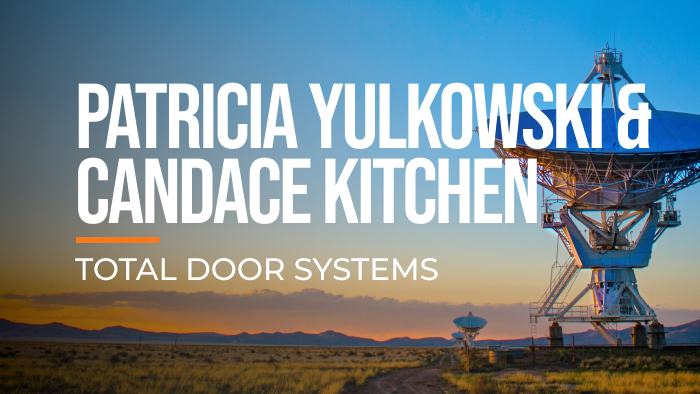
1 min read

